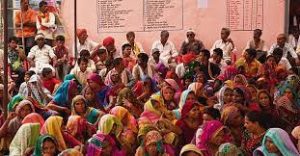Today Current Affairs: 10th August 2022 for UPSC IAS exams, State PSC exams, SSC CGL, State SSC, RRB, Railways, Banking Exam & IBPS, etc
Table of Contents
Hindu Minority And Guardianship Act (HMGA), 1956:

A mother and father should have equal rights as guardians of their children and the Hindu Minority and Guardianship Act (HMGA), 1956 should be amended as it discriminates against women, a parliamentary panel has recommended in its report.
- The Act does not provide for joint guardianship nor does it recognise the mother as the guardian of the minor legitimate child unless the father is deceased or is found unfit.
- The Act gives preference to father over mother, it goes against the right to equality and right against discrimination envisaged under Articles 14 and 15 of the Constitution.
- The committee feels that there is an urgent need to amend the HMGA and accord equal treatment to both mother and father as natural guardians.
- Section 6 of the HMGA lays down that in the case of a Hindu minor boy and a Hindu minor unmarried girl, the father is the natural guardian and ‘after’ him the mother.
- Section 7 of the same Act provides that the natural guardianship of an adopted son, who is a minor, passes on adoption to the adopted father and ‘after’ him to the adoptive mother.
PESA Act:

Aam Aadmi Party (AAP) leader Arvind Kejriwal on August 7 declared a six-point “guarantee” for tribals in Gujarat’s Chhota Udepur district, including the “strict implementation” of The Panchayats (Extension to the Scheduled Areas) Act (PESA Act).
- The PESA Act was enacted in 1996 “to provide for the extension of the provisions of Part IX of the Constitution relating to the Panchayats to the Scheduled Areas”.
- Under the PESA Act, Scheduled Areas are those referred to in Article 244(1), which says that the provisions of the Fifth Schedule shall apply to the Scheduled Areas and Scheduled Tribes in states other than Assam, Meghalaya, Tripura, and Mizoram.
- The Fifth Schedule provides for a range of special provisions for these areas.
- The PESA Act was enacted to ensure self-governance through Gram Sabhas (village assemblies) for people living in the Scheduled Areas.
- It recognises the right of tribal communities, who are residents of the Scheduled Areas, to govern themselves through their own systems of self-government, and also acknowledges their traditional rights over natural resources.
Electricity (Amendment) Bill 2022:

The Electricity (Amendment) Bill 2022 was introduced in Parliament amid protests and later sent to the standing committee for further deliberation. Many power engineers protested the Bill across the country, in states like Tamil Nadu, Telangana, Rajasthan, and others.
- In this Bill, Section 42 of the Electricity Act will be amended to allow ‘non-discriminatory open access’ to the distribution network, allowing private companies to supply electricity provided they get a license.
- Section 14 of the Electricity Act has also been proposed to be amended, allowing private companies to use distribution networks built by public sector electricity companies, enabling competition and enhancing the efficiency of power supply across the country.
- Under the Bill, consumers will be able to choose from multiple electricity providers, essentially like how they choose currently between telecom providers like Airtel, Vodafone, etc..
What Is Counterfeit Money?

The Ministry of finance has informed Lok Sabha that the value of counterfeit currency in the banking system reduced from Rs 43.47 crore in 2016-17 to about Rs 8.26 crore in 2021-22.
- Counterfeiting, manufacture of false money for gain, a kind of forgery in that something is copied so as to defraud by passing it for the original or genuine article.
- Because of the value conferred on money and the high level of technical skill required to imitate it, counterfeiting is singled out from other acts of forgery and is treated as a separate crime under section 489A of the Indian Penal Code.
- Counterfeiting is the oldest technique used by fraudsters to cheat unsuspecting individuals of their money.
Food Inflation:

The UN Food and Agriculture Organization’s Food Price Index (FFPI) averaged 140.9 points in July 2022, 8.6% down from its previous month’s level and marking the steepest monthly drop since October 2008.
- It is expected that Food Inflation may ease faster than expected.
- It is a measure of the monthly change in international prices of a basket of food commodities.
- It consists of the average of five commodity group price indices weighted by the average export shares of each of the groups over 2014-2016 (Base Year).
- It was introduced in 1996 as a public good to help in monitoring developments in the global agricultural commodity markets.
- FFPI hit an all-time-high of 159.7 points in March 2022, the month that followed the Russian invasion of Ukraine in February 2022.
- The latest index reading (July 2022) is the lowest since the 135.6 points of January 2022, before the still-ongoing war.
- Between March 2022 and July 2022, the FFPI has cumulatively declined by 11.8%
Ceasefire Between Israel And Palestine:

After three days of violence between Israel and Palestine, which resulted in killing of dozens of populations in both the countries, a ceasefire took place recently.
- Earlier this year as well, tensions flared up at Jerusalem’s al-Aqsa Mosque between the Palestinians and Israeli police.
- These recurring clashes are part of the ongoing Israeli–Palestinian conflict.
Reason for Conflict:
- Israeli aircraft targets (Islamic Jihad Leaders) in Gaza.
- In response, Iran-backed Palestinian Jihad militant group fired hundreds of rockets at Israel.
- Islamic Jihad has fewer fighters and supporters than Hamas.
- Israel launched its operation with a strike on a leader of the Islamic Jihad, and followed up on with another targeted strike on a second prominent leader.
- As per the Israeli army, militants in Gaza fired about 580 rockets toward Israel.
- Israel had intercepted many of them, with two of those shot down being fired toward Jerusalem.
- The U.N. Security Council scheduled an emergency meeting on the violence.
- China, which holds the council presidency for August 2022, scheduled the session in response to a request from the United
- Arab Emirates, which represents Arab nations on the council, as well as China, France, Ireland and Norway.
World Tribal Day 2022:

9th August is celebrated as the International Day of the World’s Indigenous Peoples.
- Aim: To highlight the role of indigenous people and the importance of preserving their rights, communities and knowledge they gathered and passed down over centuries.
- Theme: “The Role of Indigenous Women in the Preservation and Transmission of Traditional Knowledge.”
- In 1994, the UNGA, passed a resolution, declaring August 9 as the International Day of the World’s Indigenous People as it was on 9th August that the UN Working Group on Indigenous Populations held its first meeting.
- Taking cognisance of the knowledge acquired by indigenous people is vital culturally and also scientifically
- Understanding and preservation of indigenous languages, their spiritual practices, and philosophies can help in the conservation and upliftment of Tribals without compromising their identity.
- Status of Tribes in India: Tribal Population constitutes 8.6% (or 11 cr) of the total population (the second largest number of tribal people in any country in the world). 89.97% of them live in rural areas and 10.03% in urban areas.
- According to Lokur Committee (1965), the essential characteristics to be recognized by Scheduled Tribe are: Indication of Primitive Traits, Distinctive Culture, Shyness of Contact with the Community at Large, Geographical Isolation, Backwardness
- Constitution of India does not define the term ‘tribe’, however, the term Scheduled Tribe’ was inserted in the Constitution through Article 342 (i).
Ocean Thermal Energy Conversion:

The National Institute of Ocean Technology, an autonomous institute under the Union Ministry of Earth Sciences (MoES) is establishing an Ocean Thermal Energy Conversion Plant with a capacity of 65 kilowatts (kW) in Kavaratti, Lakshadweep.
- The plant will power the one lakh liter per day low temperature thermal desalination plant, which converts seawater into potable water.
- The plant is the first of its kind in the world as it will generate drinking water from sea water using indigenous technology, green energy and environmentally friendly processes.
- Ocean Thermal Energy Conversion (OTEC) is a process for producing energy by harnessing the temperature differences (thermal gradients) between ocean surface waters and deep ocean waters.
- Oceans are huge heat reservoirs as they cover almost 70% of Earth’s surface.
- Researchers focus on two types of OTEC technologies-
- Closed cycle method – where a working fluid (ammonia) is pumped through a heat exchanger for evaporation and the steam runs a turbine.
- The vapour is turned back to fluid (condensation) by the cold water found at the depths of the ocean where it returns to the heat exchanger.
- Open cycle method – where the warm surface water is pressurized in a vacuum chamber and converted to steam which runs the turbine. The steam is then condensed using cold ocean water from lower depths.
- India initially had planned to set up an OTEC plant way back in 1980, off the Tamil Nadu coast. However, with the foreign vendor closing down its operation, it had to be abandoned.
- India’s OTEC Potential:
- As India is geographically well-placed to generate ocean thermal energy, with around 2000 kms of coast length along the South Indian coast, where a temperature difference of above 20°C is available throughout the year.
- The total OTEC potential around India is estimated as 180,000 MW, considering 40% of gross power for parasitic losses.




